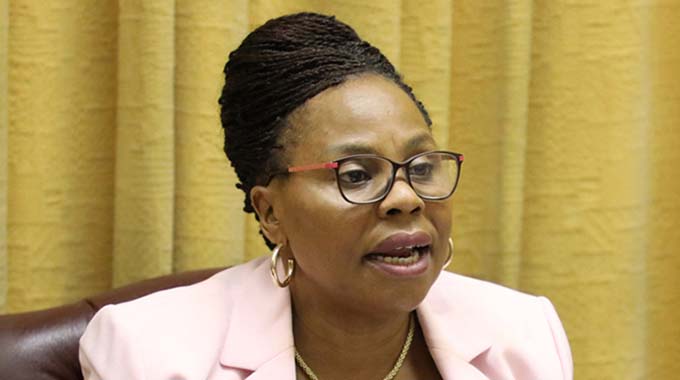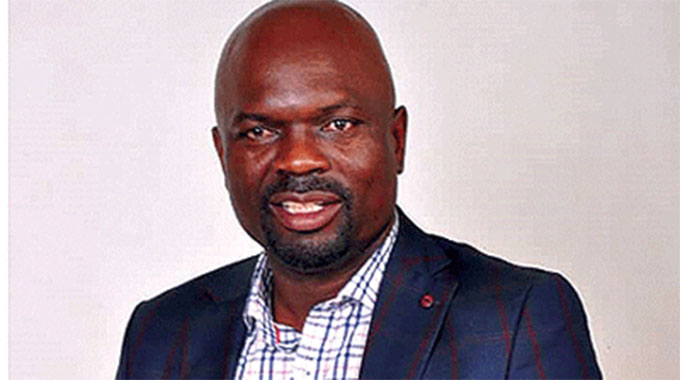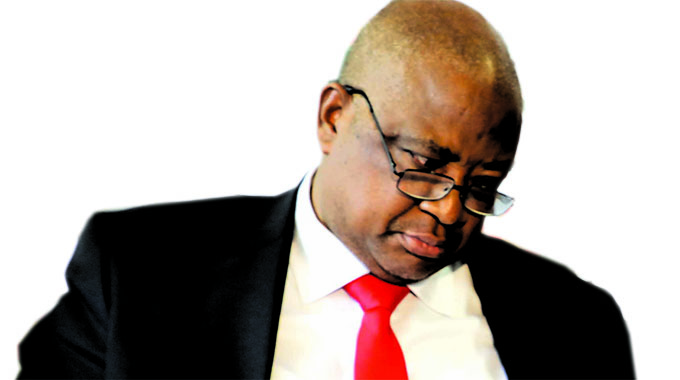Media should foster peace: Mutsvangwa

TINOMUDA CHAKANYUKA THE INTERVIEW
The Zimbabwean media space has opened up since the ushering in of the new dispensation. Zimpapers Television Network (ZTN) reporter Tinomuda Chakanyuka (TC) had an interview with Information, Publicity and Broadcasting Services Minister Monica Mutsvangwa (MM) to take stock of progress made in reforming the media. Below are excerpts of the interview.
TC: Can you give us an overview of your 100-day plan: the hits and misses of your first 100 days in office?
MM: We have put our 100 days with that in mind, that we should not miss it. We chose five projects, which we are sure we will be able to meet the targets on. One is about empowering people in rural areas, just making sure we give them access to radio and television. The public screen viewing is one of the most important ones, which we have also been working on. We are also working on the repealing of AIPPA, which has become toxic in certain areas. We have also been doing a lot of work in making sure that digitisation comes to a point where we can say that people are enjoying the investment, which is being done by Government. A lot of money has already been put down, almost $16 million on digitisation.
The project started in 2015, and should have been finished by now and should have given us a wide spectrum in terms of watching TV.
Last time I was in Kariba. I also went to Binga, and the people in Binga were telling me that they were watching TV and listening to radio from Zambia. We are saying as a ministry, information is power, we want our people to listen to what the Government is doing.
The Second Republic is a Government for the people, a Government with a listening President and as such we want our people to hear what Government projects are in place, what the President is saying, and know what Government ministers and parastatals are doing. We want everybody on board, we don’t want to leave anyone behind.
We are trying as much as possible to make sure that we have transmitters in all those areas where they are not accessing radio and TV.
And I must say in certain areas like Kanyemba, we are working very hard to make sure that by the end of this month they will be able to have a public screening TV and radio. So these are some of the projects that we are working on.
TC: You mentioned the digitisation project as one of the five projects that you are embarking on. The project has been underway for a long time now and we have missed deadlines on a couple of occasions. What are the major challenges encountered?
MM: Just some three weeks ago as the Minister of Information, Publicity and Broadcasting Services I went around the country together with our CEO’s from Broadcasting Authority of Zimbabwe (BAZ) and Transmedia which is a signal company and our Permanent Secretary.
We took it upon ourselves to visit the projects in the areas of Binga, Kamativi, and also in Hwange just to make sure that we understand how far we are in terms of at least making people in those areas have access.
There are transmitters which have been finished and they are fully digitalised and we feel that those people around those areas can start benefiting from this investment which has been done since 2015. The project should have been completed by 2016, unfortunately we could not meet the deadline. The biggest challenge was financial constraints especially when it comes to foreign currency which is needed to pay for the equipment and all inputs needed.
But I must say a lot of work has been done and we have transmitters which are already fully digital. And we feel that with set top boxes we can be able then to provide or the people can actually buy.
We are looking at many possibilities, public private partners to make sure that at least the provision of these set top boxes which will allow the people not to change their TV but rather to use those so that they can become fully digital. We saw it in Kamativi, Hwange and Binga. Those transmitters are full digital, what is drawing us behind is that we don’t have set top boxes yet. I am glad that Government has realised the importance of finishing the digitisation. This project has got to be completed because it will give us a wider spectrum and everybody in Zimbabwe will be able to listen to Zimbabwe radio and watch Zimbabwe TV that is what we want. We also want more TV channels so that people will have choice. We want competition, good quality and content and people of Zimbabwe have the opportunity to have a variety and choose from those. That can only happen if we have gone fully digital.
The advantages of digitisation are wide and a lot of our people will enjoy watching their own TV and radio. There are still challenges here and there. When I visited Kamativi and Hwange I realised that yes some of our transmitters are fully digital, but we may have the problem of access to electricity. So when that happens, it becomes very expensive because we have to use generators which need diesel that again becomes a challenge. We are working with all the ministries because this is a project for Zimbabwe, not only this ministry.
We are working together with relevant ministries to make sure that wherever our transmitters have been installed and fully digitalised, let us have electricity so that our people in the nearest future should start watching ZBC through satellite. This is what the people want and this is what we are going to provide.
In any case, our President has created this democratic space where everyone has got to have access to information no matter where one is.
TC: You did mention that Government realises the need to finish the digitisation project, are you working with a specific deadline for the full completion of the project?
MM: We would like to finish digitisation as quickly as possible. But you will agree with me that Zimbabwe is going through difficult times when it comes to foreign currency and most of the equipment is imported that requires a lot of foreign currency.
There are some priorities, there is foreign currency needed for medication because it is critical that we have medication in our hospitals. There is also foreign currency needed for fuel and it is critical that the Government is leaving no stone unturned to ease fuel queues.
We are happy at least Minister of Finance put aside at least $39 million just to make sure that we continue with that project. Obviously that will not be enough to complete the project, but it will certainly make us move.
As soon as the foreign currency situation gets better, we will be able to finish the project.
TC: Will that project only benefit the national broadcaster?
MM: We said once the digitisation is complete there is full spectrum there is capacity to bring even 12 channels. We are planning on bringing six television channels in the nearest future. We are looking forward to that competition, it’s good, it’s healthy and it gives Zimbabweans the opportunity to watch a variety of content.
If you want to watch sport ,if you want to watch Educational programmes, this is what we want I think Zimbabweans deserve better and certainly there is no way that we cannot get there.
TC: There have been issues with other players in the industry that inasmuch as the Government is licensing new players, the licensing is done along partisan lines to such an extent that and inasmuch as we may have media plurality we may not have diversity. What is your response to that?
MM: I think that was in the past in the First Republic maybe, but the Second Republic is looking at giving an opportunity to every Zimbabwean who finds himself in a position that they would like to own a television.
The process is going to be transparent and accountable. BAZ will be able to advertise and make sure that everybody has access to that information when and what to do to get that licence, everything will be transparent .
We are also looking at community radios and the question has been what is the definition of community radios, who is the community and that is critical and as the Government we feel that the community out there, traditional leaders, the DA, people in that particular area should actually own those radio. Government will only come to help in setting up but allow the community to own those radios.
TC: The opening up of airwaves or opening up of media space to private media will obviously open space for divergent views and it will come with criticism to the Government. Is the Government prepared to take criticism?
MM: I think you know it from November 2017 when the restoration of the revolutionary legacy was put into place.
Since President Mnangagwa was inaugurated he was talking about openness and his mantra is ‘Zimbabwe is open to businesses’.
He created that democratic space, we saw it even during the November 2017 march when Zimbabweans all went into the streets and marched peacefully for the removal of the old dispensation which was there.
It was very peaceful and invitations were sent to everyone and most journalists came to Harare there was nothing which was done privately. This has continued up to now and President Mnangagwa has been consistent on his message of opening up the airwaves and we have benefited as people of this country.
We saw how it was good, everything was done transparently and the whole world saw how mature the people of Zimbabwe are when they marched. It was very peaceful, power was transmitted without any bloodshed.
The July elections, again the President was very open he welcomed anybody who wanted to observe. You know very well that we had journalists who came all over the world to Zimbabwe. They saw that during the elections people went and did their campaigns in peace and they went on to do their elections in peace.
Information went round for those who wanted to be elected on how to register at ZEC. Those who wanted to vote also had information in terms of registration of voters. All that went in the public and it was transparent and that has benefited us.
What is critical at this point and time as a Ministry is to try and remove that polarisation which has been existing not just in the media but it has also been existing in our society.
TC: You mentioned polarisation in the media. What causing this polarisation and what efforts are you putting to try and bring the media together and close that divide?
MM: As soon as I got appointed that was the first thing I had to do was to remove the polarisation among our society and also in the media institutions. Them and us mentality cannot take us anywhere. We are Zimbabweans first before we become political animals.
The politics of yesteryear had divided people turning brother against brother and as long as people belong to different political parties they became enemies and that has permeated into the society.
Our duty as this ministry is to make sure that we remove completely that polarisation. We do not need it whether it’s in the media institutions. For me there is no private or public sector media they are all media institutions. What is critical is for all of us to come together and ask ourselves what do we need as Zimbabweans? What kind of Zimbabwe do we want? We are all Zimbabweans if Zimbabwe was a company each and every Zimbabwean will be a shareholder to that company.
No one is important than the other and what we want is what we need to be talking about. We cannot allow anyone even politics to divide us to a point where we destroy what God gave us. If a Zimbabwean goes outside the country he is identified only as Zimbabwean not through being MDC or ZANU-PF or any other political party.
Outside, people are identified through their Zimbabwean passport not by their political parties. We should put massages of unity and stop preaching messages of discord let us do away with that, gone are the days that such used to happen.
If you are going to post a message causing despondency and disharmony you are only hurting yourself. Zimbabwe is our country and we should create that environment that allows foreign direct investors to come.
We have a beautiful country given to us by God and as such investors are bound to come and invest in this country and we need them. No country builds infrastructure without the help of foreign direct investors.
Zimbabwe is beautiful country with good weather, skilled labour and we have high literacy rate in Africa next to Tunisia and as such our youths and women will get employed. Therefore there is no need to keep on fighting and create a bad impression our country. Let’s love our country and let us create an environment that will make investors love our country as well.
TC: There seems to be a worrying disconnection between the refreshing stance that has been taken by the new dispensation and the behaviour of certain police officers in regard to the harassment and arrests of journalists. What are you doing to address that?
MM: Our duty as the ministry is to coordinate all the work and all the implementation of other policies with other ministries, so that we then mould that information so when the reports come to us we make sure that the investigations begin and also that the culprits are punished.
We cannot allow a situation where Zimbabweans in their own country are not living comfortably. We want a Zimbabwe where we are free and happy there is a lot of peace in this country and we even want more peace.
The police have been continuously doing training and I can say that the police have been doing good work in the second republic, because the President who is the leader of the Second republic is on record talking about peace and unity, loving for each other and Zero tolerance to corruption. The President has been consistent in his message and our people are beginning to love each other. When foreign direct investors come in this country they don’t just employ a certain party youth, they employ Zimbabweans and this is what we want.
TC: There have been concerns in the media industry over the welfare of journalists, particularly regarding remuneration and working conditions. There is no national employment council for the media industry, what efforts are you putting as the minister responsible to ensure that the welfare of journalists is upgraded as well as their working conditions are improved?
MM: The ministry is very much alive to this sad situation, where journalists have to live a life of a pauper sometimes, and journalists ending up being bought by individuals, who want to push for certain agendas which have got no particular interest of the country.
It’s because the brown envelopes thing and it’s important that our journalist’s welfare is looked into. This is something that we have to do, not just as a ministry but we have to work together and if there is something that we can do to make sure we facilitate that there is a worker’s committee.
The problem of our salaries being low is a problem which is cutting across the board and it’s important that as the economy improves, certainly, the salaries of journalists should also be able to go up because we know that we cannot continue to have journalists who are like paupers and they are taken for granted.
We are not only looking at the welfare of journalists, we are also looking at the training of journalists. It’s critical that our journalists are well trained. The time when journalists start reporting, they report from inward looking is gone.
We are saying we want journalists who report professionally and factually so that at least there is some harmony in the country, we don’t have to necessarily create discord where there is no need to create discord.
So the issue of training, the issue of exchange programs as a ministry we are looking at a time where we will be able to send our journalists out there so that they can also look at other countries and other institutions whether its in China, USA, UK, they can learn new skills. They will also understand and be exposed.
Exposure is very critical because Zimbabwe is part of the global village. So we are very much alive to that problem and we would like to work together. I have been working very closely with ZUJ and all other institutions to make sure that we move together and as a ministry we are there to listen, we are your servants.
When we seat here in this ministry we are your servant leaders and this has been said again and again by our President ED Mnangangwa. The second republic doesn’t tolerate leaders who do not listen to people. The point is we are here we want to listen, we want to know, to listen to the media institutions and see how we can move together so that nobody is left behind and we will be able to improve the lives of everyone.









Comments